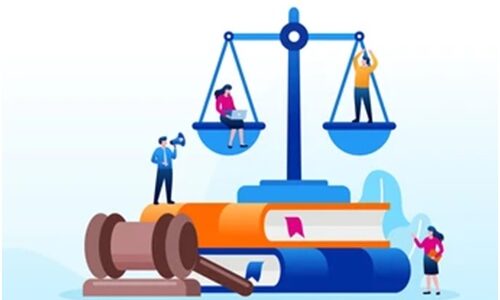AI’s rapid rise has made it easy for any organization to embrace applied intelligence and machine learning for profitable purposes. Like any technology application, there are two sides to the AI business. The boons, no wonder far exceed the banes of the technology. For a beginner in Artificial Intelligence 101, finding the scope of technology almost inclines toward worshipping it and thinking of it as a savior of the human race. But, wait, things have heated up and stirring a storm in the AI domain in recent times as reports have come up where AI’s very accessibility has made it a thing to be worried about. Threat actors are using AI technologies to create problems. For example, the problems like Deep Fakes, Fake News, financial fraud, data theft, and countless other complex issues have all open up can of worms for data scientists and researchers who are now calling for legal frameworks to regulate the tapping of AI for domestic purposes.
Let’s understand what AI governance means, and how beginners in Artificial Intelligence can create a comfortable space within an ethical AI ecosystem without stepping to the wrong side of doing business with Artificial Intelligence and Machine learning algorithms in a regulated system.
What is AI Governance?
Leading research firms state AI governance as the legal arm of the data science industry that deals with regulation of advanced machine learning technologies, ensuring the AI Machine learning applications are used to help humanity improve upon present conditions, and used fairly without biases. These biases could refer to gender, race, physical conditions, geography, governance, and ethical principles.
For example, the use of AI to detect fetal sex before birth can be considered as part of the discussion about AI governance in counties where pre-determination tests of fetal sex are illegal. Similarly, asking a person to sign up for a facial recognition app without ensuring data privacy and comfort of the user is again part of AI governance. For example, a burnt person may not find it useful to sign up for a facial recognition app, or for that matter, a person without limbs may not sign up for fingerprinting or a mute person may not sign up for voice search applications. All these endanger the scope of AI governance and open up biases that favor people with certain abilities over others who don’t.
In today’s hyper-terrorized and highly militarized data science ecosystem where some countries are using the technologies to launch cyberattacks and create a state of panic through ransomware, IT blockades or building weapon control systems using AI, uniform global AI governance system is required.
What are the factors associated with AI Governance?
The main focus points of AI governance that any beginner should know are listed as follows:
- Universal justice
- Data privacy
- Autonomy
- Democratization
As we see a rapid development of open source AI projects, as hosted on Github and Gitlab and so on, the risk of creating juvenile apps to haunt users could lead to the downfall of AI. AI governance would ensure that all concerns pertaining to justice, liberty, democracy, and ethics would be taken care of through institutionalization of how much data, what kind of data, and other aspects of data lifecycle would be allowed for building Machine Learning algorithms.
AI Openness: Is it a Risky Ecosystem?
If the last few years were about dealing with questions like:
“Would AI become autonomous?”
“Are AI bots coming to take our jobs?”
“Can I lose my job to an AI?”
Now, we would be forced to answer questions like:
“How could we regulate the AI for beginners?”
“Can I learn AI ML without understanding AI ethics and meeting compliance?”
“Can I be penalized for using open data without consent or revealing the source?”
These may sound futuristic questions at the moment, but if you dig a little deeper and follow news on the recent backlash on AI companies using Big Data without revealing the source and approving of consent and privacy management, your career could be jeopardized if your name crops up in the regulation process.
So, when it comes to AI for beginners, step ahead with AI governance.



